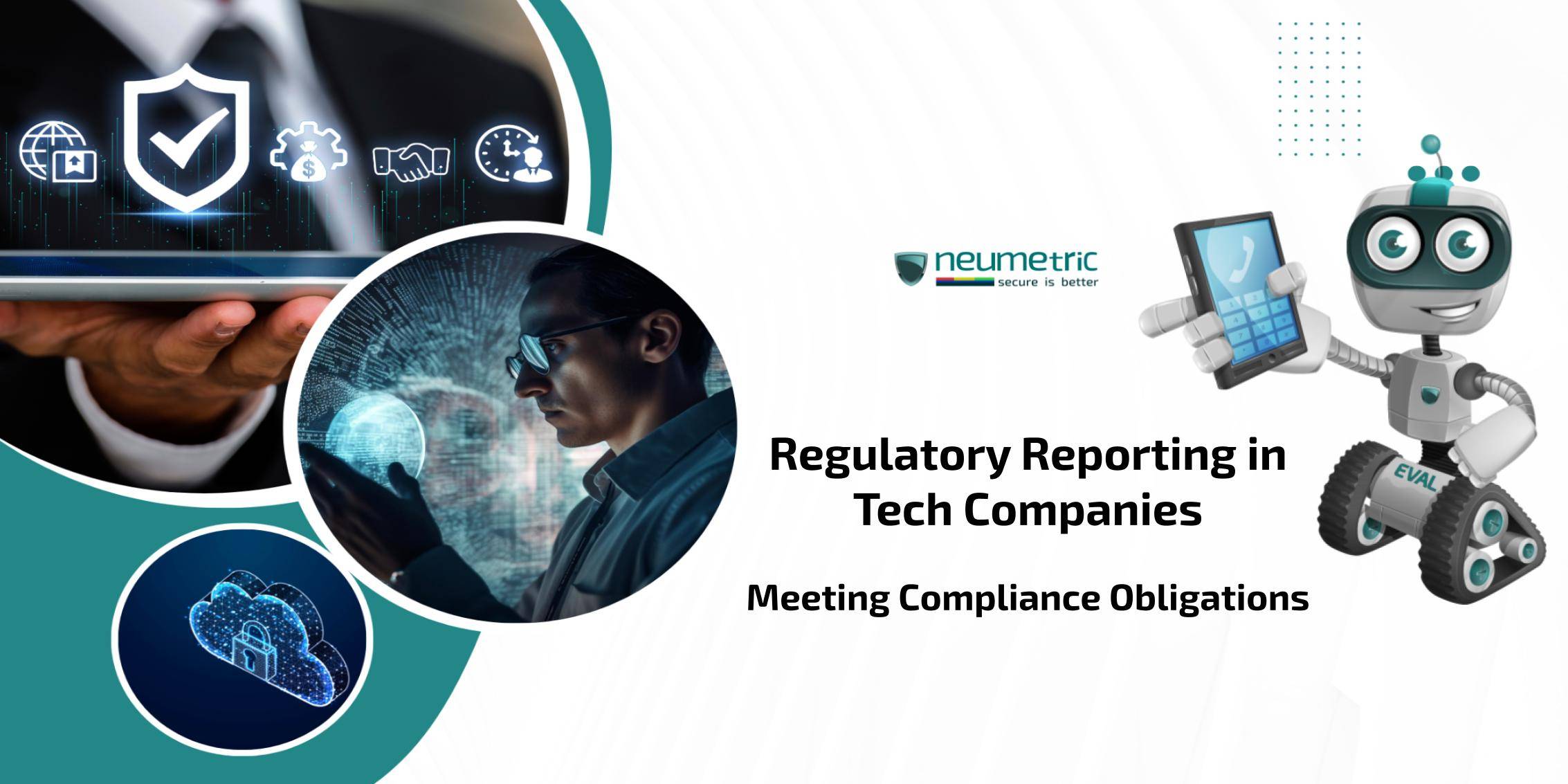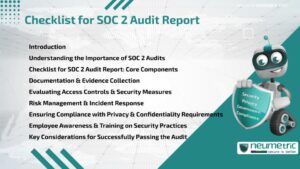Table of Contents
ToggleRegulatory Reporting in Tech Companies: Meeting Compliance Obligations
Introduction
Regulatory reporting in the tech industry encompasses a wide array of mandates & standards set forth by various governmental bodies & industry regulators. These regulations aim to safeguard consumer interests, ensure fair competition & maintain the integrity of digital ecosystems. From data privacy laws like GDPR & CCPA to financial regulations such as SOX & SEC requirements, tech companies face a complex web of compliance obligations that demand meticulous attention & adherence.
The importance of compliance obligations for tech companies cannot be overstated. Failure to comply with regulatory mandates not only exposes companies to legal & financial risks but also erodes consumer trust & tarnishes brand reputation. In an era where data breaches & regulatory fines make daily headlines, prioritizing compliance is paramount for long-term viability & success. Moreover, compliance with regulatory standards fosters a culture of transparency, accountability & ethical business practices, which are essential for building enduring relationships with stakeholders.
In the following sections, we will explore a range of strategies designed to help tech companies navigate the complex terrain of regulatory compliance. From fostering a culture of compliance within the organization to implementing robust frameworks for risk assessment & mitigation, these strategies offer actionable insights for proactively addressing regulatory challenges. Additionally, we will examine the role of technology, collaboration & continuous innovation in streamlining compliance processes & staying ahead of evolving regulatory landscapes. By embracing these strategies, tech companies can not only fulfill their compliance obligations but also leverage regulatory compliance as a catalyst for growth & differentiation in an increasingly competitive market.
Understanding Regulatory Reporting in Tech
Regulatory reporting in the tech industry refers to the process of fulfilling legal & compliance requirements set forth by regulatory authorities. This entails the collection, analysis & submission of relevant data & information to demonstrate adherence to specific regulations & standards. The scope of regulatory reporting extends across various facets of a tech company’s operations, including data privacy, cybersecurity, financial transparency & industry-specific regulations. It involves not only reporting on past activities but also implementing measures to ensure ongoing compliance with evolving regulatory frameworks.
Tech companies are subject to oversight from a multitude of regulatory bodies & frameworks at both national & international levels. Some of the key regulatory bodies & frameworks that significantly impact tech companies include:
- Data Privacy Regulations: Regulatory bodies such as the European Union’s [EU] General Data Protection Regulation [GDPR] & the California Consumer Privacy Act [CCPA] set stringent requirements for the collection, use & protection of personal data, imposing hefty fines for non-compliance.
- Cybersecurity Standards: Standards like the National Institute of Standards & Technology [NIST] Cybersecurity Framework & the International Organization for Standardization [ISO] 27001 provide guidelines for implementing robust cybersecurity measures to safeguard sensitive information & mitigate cyber threats.
- Financial Regulations: Tech companies involved in financial activities are subject to financial regulations such as the Sarbanes-Oxley Act [SOX] & Securities & Exchange Commission [SEC] regulations, which mandate transparency, accuracy & accountability in financial reporting & disclosure.
- Industry-Specific Regulations: Certain industries, such as healthcare, are governed by industry-specific regulations like the Health Insurance Portability & Accountability Act [HIPAA], which imposes strict requirements for the protection & confidentiality of patient health information. Tech companies operating in these sectors must comply with these specialized regulations in addition to general regulatory mandates.
Common Compliance Obligations for Tech Companies
- Data Privacy Regulations: With the proliferation of data-driven technologies, protecting consumer privacy has become paramount. Regulations like GDPR & CCPA impose obligations on tech companies to obtain explicit consent for data collection, ensure data accuracy & integrity & provide individuals with control over their personal information.
- Cybersecurity Standards: In an era of pervasive cyber threats, adherence to cybersecurity standards is essential for safeguarding sensitive data & mitigating security risks. Compliance with frameworks like NIST & ISO 27001 entails implementing robust security controls, conducting regular risk assessments & establishing incident response procedures to detect & respond to cyber incidents effectively.
- Financial Regulations: Tech companies engaged in financial activities must comply with regulatory requirements aimed at ensuring the integrity & transparency of financial reporting. Compliance with SOX involves implementing internal controls over financial reporting, conducting regular audits & maintaining accurate & reliable financial records to prevent fraud & financial misstatements.
- Industry-Specific Regulations: Tech companies operating in regulated industries, such as healthcare & finance, must adhere to industry-specific regulations tailored to their sector’s unique requirements. For example, compliance with HIPAA entails implementing strict safeguards for protected health information [PHI], ensuring secure transmission & storage of PHI & maintaining comprehensive documentation of security measures to demonstrate compliance with regulatory requirements.
Challenges in Regulatory Reporting
One of the most daunting challenges facing tech companies in regulatory reporting is the constantly shifting regulatory landscape. Laws & regulations governing data privacy, cybersecurity & other areas pertinent to the tech industry are continuously evolving in response to emerging threats, technological advancements & changing societal expectations. Keeping pace with these regulatory changes requires constant vigilance & adaptability, as failure to comply with updated requirements can result in significant penalties & reputational damage.
The complexity of compliance requirements poses another major challenge for tech companies. Regulatory mandates are often multifaceted, requiring a deep understanding of legal frameworks, technical specifications & industry best practices. Navigating this complexity necessitates dedicated resources, specialized expertise & sophisticated compliance management systems. Moreover, the interconnected nature of regulatory obligations means that compliance efforts must address overlapping requirements from multiple regulatory authorities, further complicating the compliance landscape.
Data Management & Security Concerns
Tech companies face immense pressure to safeguard the vast amounts of data they collect, process & store. Data management & security concerns loom large in the realm of regulatory reporting, as data breaches & privacy violations can have severe legal, financial & reputational consequences. Ensuring compliance with data privacy regulations like GDPR & CCPA requires robust data governance frameworks, encryption technologies, access controls & comprehensive data protection measures. Moreover, as cyber threats continue to evolve in sophistication & scale, tech companies must continuously fortify their cybersecurity defenses to mitigate the risk of data breaches & cyberattacks.
Resource Constraints & Scalability Issues
Resource constraints & scalability issues present additional hurdles for tech companies grappling with regulatory reporting. Smaller startups & emerging tech firms may lack the financial resources, personnel & infrastructure necessary to establish comprehensive compliance programs. As these companies grow & expand their operations, they must navigate the complexities of scaling compliance efforts across diverse business units, geographic regions & regulatory jurisdictions. Balancing the need for compliance with limited resources requires strategic prioritization, efficient allocation of resources & investment in scalable compliance solutions that can adapt to changing business needs.
Strategies for Effective Compliance Management
Establishing a Compliance Culture
- Leadership Commitment to Compliance: Leadership plays a pivotal role in fostering a culture of compliance within the organization. By demonstrating a commitment to compliance from the top down, executives set the tone for ethical behavior & regulatory adherence throughout the company.
- Employee Training & Awareness Programs: Empowering employees with the knowledge & skills necessary to understand & comply with regulatory requirements is essential. Regular training sessions, workshops & awareness programs ensure that employees are aware of their compliance obligations & equipped to fulfill them effectively.
- Integration of Compliance into Company Values & Processes: Compliance should not be treated as an afterthought but rather integrated into the fabric of the organization’s values & processes. By embedding compliance considerations into decision-making processes & day-to-day operations, companies can ensure that regulatory compliance becomes second nature to employees.
Implementing Robust Compliance Frameworks
- Risk Assessment & Mitigation Strategies: Conducting comprehensive risk assessments enables companies to identify potential compliance risks & vulnerabilities. By proactively identifying & prioritizing risks, organizations can develop targeted mitigation strategies to minimize the likelihood & impact of compliance breaches.
- Regular Auditing & Monitoring Processes: Regular audits & monitoring processes are crucial for assessing the effectiveness of compliance controls & detecting any deviations from regulatory requirements. By conducting periodic audits & implementing real-time monitoring mechanisms, companies can identify compliance gaps & take corrective action promptly.
- Utilization of Compliance Management Software: Leveraging technology solutions such as compliance management software streamlines compliance processes, centralizes data collection & reporting & facilitates collaboration among stakeholders. Compliance management software enables companies to automate routine tasks, track compliance metrics & generate audit trails for accountability & transparency.
Ensuring Data Privacy & Security
- Encryption & Data Protection Measures: Implementing robust encryption & data protection measures safeguards sensitive information from unauthorized access & breaches. Encryption technologies, secure storage solutions & data masking techniques are essential components of a comprehensive data protection strategy.
- Access Controls & User Permissions: Controlling access to sensitive data through role-based access controls & user permissions helps prevent unauthorized disclosure or misuse of information. By limiting access to only authorized individuals based on their role & responsibilities, companies can mitigate the risk of data breaches & insider threats.
- Incident Response & Breach Notification Procedures: Developing clear incident response & breach notification procedures is critical for effectively managing data breaches & mitigating their impact. Companies should have protocols in place to detect, contain & remediate security incidents promptly, as well as communicate transparently with affected parties & regulatory authorities in accordance with legal requirements.
Collaboration with Regulatory Experts & Legal Counsel
- Engagement with External Compliance Consultants: Seeking guidance from external compliance consultants with expertise in regulatory requirements & industry best practices can provide valuable insights & support in navigating complex compliance challenges. External consultants can offer impartial assessments, strategic recommendations & specialized expertise to augment internal compliance efforts.
- Participation in Industry Forums & Working Groups: Active participation in industry forums, working groups & professional associations facilitates knowledge sharing, collaboration & peer learning opportunities. Engaging with industry peers, regulatory experts & thought leaders enables companies to stay abreast of emerging trends, best practices & regulatory developments relevant to their sector.
- Proactive Engagement with Regulators for Guidance & Clarification: Establishing open lines of communication with regulatory authorities fosters a collaborative relationship & promotes proactive compliance. Companies should seek guidance & clarification from regulators on ambiguous or evolving regulatory requirements, demonstrate a commitment to compliance & strive for transparency & cooperation in regulatory interactions.
Conclusion
Regulatory compliance is not merely a legal obligation but a fundamental imperative for tech companies operating in today’s digital landscape. The tech industry is built on innovation, data-driven insights & disruptive technologies that have the power to transform societies & economies. However, with great innovation comes great responsibility & tech companies must uphold the highest standards of ethical conduct, accountability & regulatory compliance. By adhering to regulatory requirements, tech companies can instill confidence among consumers, investors & regulators, positioning themselves as trustworthy stewards of data & technology.
As we look to the future, the importance of regulatory compliance in the tech industry will only continue to grow. Rapid advancements in technology, coupled with evolving regulatory landscapes, underscore the need for tech companies to prioritize compliance efforts as a strategic imperative for long-term success. Compliance should not be viewed as a burden or hindrance to innovation but rather as a catalyst for responsible growth, innovation & sustainable business practices.
Therefore, we urge tech companies to embrace compliance as a core value, integrate it into their organizational culture & invest in the necessary resources, processes & technologies to ensure ongoing compliance with regulatory requirements. By doing so, tech companies can build trust, foster innovation & thrive in an increasingly complex & competitive global marketplace.
FAQ
What are the main challenges tech companies face in regulatory compliance?
Regulatory compliance in the tech industry poses several challenges, including keeping up with the rapidly evolving regulatory landscape, navigating the complexity of compliance requirements, addressing data management & security concerns & managing resource constraints & scalability issues. These challenges require a proactive approach & strategic investments in compliance management.
How can tech companies ensure data privacy & security compliance?
Tech companies can ensure data privacy & security compliance by implementing robust encryption & data protection measures, establishing access controls & user permissions, developing incident response & breach notification procedures & leveraging compliance management software. Additionally, fostering a culture of security awareness & compliance among employees is essential for safeguarding sensitive information.
Why is regulatory compliance important for tech companies?
Regulatory compliance is crucial for tech companies to uphold ethical standards, protect consumer trust, mitigate legal & financial risks & maintain long-term viability & competitiveness. Compliance with regulatory requirements demonstrates a commitment to responsible business practices, fosters transparency & accountability & enhances the reputation & credibility of tech companies in the eyes of stakeholders.





